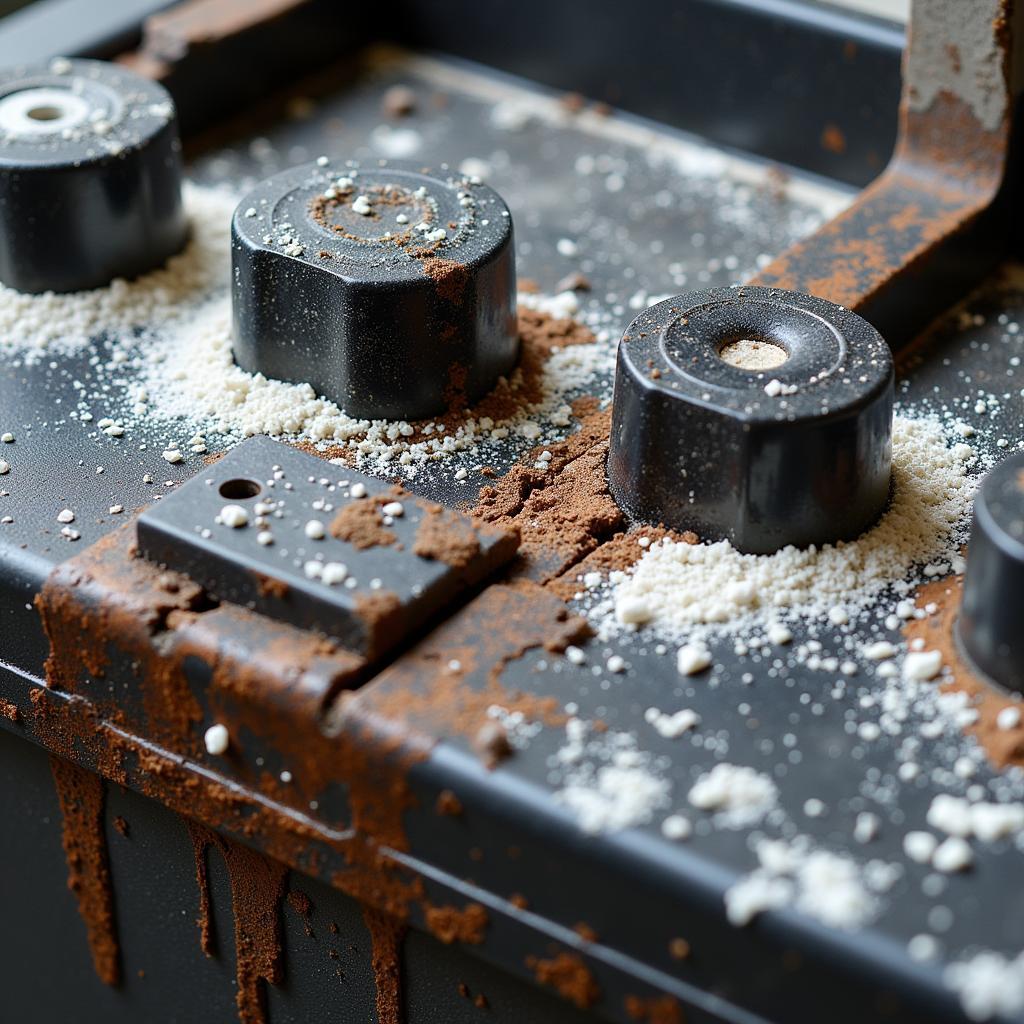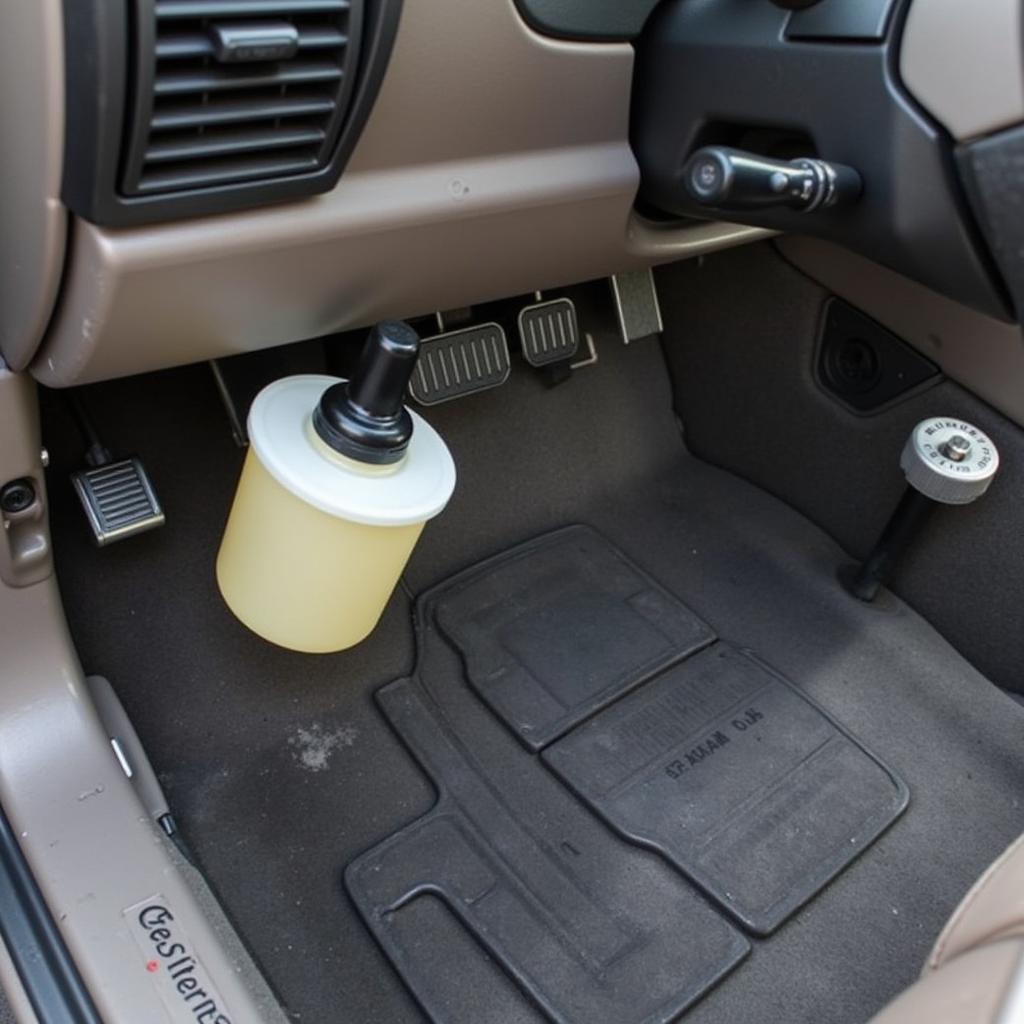A car battery that discharges quickly can be a major inconvenience, leaving you stranded and frustrated. Understanding why your car battery discharges quickly is the first step towards finding a solution and getting back on the road. This article dives deep into the common causes, diagnostic techniques, and solutions for a rapidly discharging car battery. how to change battery in prius key fob
Why Does My Car Battery Discharge Quickly?
Several factors can contribute to a car battery discharging quickly. From parasitic draws to failing alternators, pinpointing the culprit requires a systematic approach. Some of the most common reasons include:
- Parasitic drain: Even when your car is off, certain components continue to draw power, slowly draining the battery. This can be caused by faulty wiring, malfunctioning modules, or even interior lights left on.
- Failing alternator: The alternator recharges the battery while the engine is running. A failing alternator won’t charge the battery effectively, leading to a quick discharge.
- Old battery: Car batteries have a limited lifespan, typically 3-5 years. An old battery may not hold a charge as effectively, resulting in rapid discharge.
- Extreme temperatures: Both extreme heat and cold can negatively impact battery performance and lifespan, leading to faster discharge rates.
- Short trips: Short trips don’t give the alternator enough time to fully recharge the battery, especially if you’re using power-hungry accessories like the heater or headlights.
Diagnosing a Quickly Discharging Car Battery
Identifying the exact cause of a rapidly discharging car battery requires some diagnostic tools and techniques.
How to Test Your Car Battery
- Visual inspection: Check the battery terminals for corrosion or loose connections. Clean any corrosion with a baking soda and water solution.
- Voltage test: Use a multimeter to check the battery voltage. A fully charged battery should read around 12.6 volts.
- Load test: A load test simulates the strain of starting the engine and provides a more accurate assessment of battery health.
- Alternator test: Check the alternator output voltage with the engine running. It should be around 13.5-14.5 volts.
Using a Multimeter to Detect Parasitic Draw
A multimeter is an essential tool for diagnosing parasitic draw. By measuring the current draw with the car off, you can pinpoint potential issues. testing car battery drain with multimeter
Solutions for a Quickly Discharging Car Battery
Once you’ve identified the cause of the rapid discharge, you can implement the appropriate solution.
Replacing a Faulty Alternator
A failing alternator needs to be replaced to ensure the battery is properly charged.
Addressing Parasitic Drain
Identifying and fixing the source of the parasitic drain is crucial. This might involve repairing faulty wiring, replacing malfunctioning modules, or simply ensuring all lights and accessories are turned off. cause of rapid discharge of battery
Installing a New Car Battery
If your battery is old or failing, replacing it is the best solution.
“A properly functioning battery is essential for reliable vehicle operation. Don’t underestimate the importance of regular battery maintenance,” advises John Smith, Senior Automotive Electrical Engineer at AutoTech Solutions.
Conclusion
A car battery that discharges quickly can be a frustrating problem. By understanding the common causes, utilizing diagnostic techniques like using a multimeter to check for parasitic drain, and implementing the appropriate solutions, you can keep your car running smoothly. Regular maintenance, including checking the alternator’s performance and keeping an eye on your battery’s age, can prevent future issues with your car battery discharging quickly. Don’t hesitate to consult a qualified mechanic if you’re unsure about any of these steps. check engine light after dead battery
“Addressing battery issues promptly can prevent further damage to your vehicle’s electrical system,” adds Jane Doe, Lead Technician at AutoCare Center.


